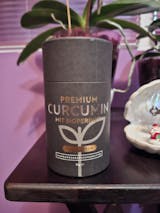- Problem: The skin needs natural nourishment and renewal.
- Solution: Extracted from the seeds of Rosa moschata, pure rosehip seed oil is rich in omega-6 essential fatty acids. This oil can be used to help skin renew, restore a healthy glow, and provide antioxidant protection.
- Ingredients: Organic rosehip seed oil (100% pure).
- Rosehip Seed Oil Uses and Benefits:
Rose hips have been used for centuries, dating back to the time of Hippocrates. Learn more about the various benefits of rose hip oil.
Rosehip oil and vitamin C
Rose hips are said to have more vitamin C than an orange or lemon. Vitamin C has antioxidant properties. Research shows that vitamin C can help reduce damage from ultraviolet light caused by free radicals. Vitamin C also aids in the production of collagen, which helps reduce wrinkles.
Other skin benefits
Rosehip oil contains vitamin A, which can benefit your skin by:
- reducing and reversing sun damage
- wrinkle reduction
- reduction of hyperpigmentation
- treatment of mild to moderate acne
Osteoarthritis relief
Rosehip oil is a folk remedy for arthritis and joint pain. A 2008 review of studies found that rosehip powder reduced pain in osteoarthritis.
Osteoarthritis is a type of arthritis. It occurs when the cartilage on the ends of your bones wears away. The positive results of rosehip oil may be due to the polyphenols and anthocyanins in the oil, which are thought to reduce inflammation and joint pain.
Source of lycopene
A 2003 study found that rose hips are a great source of lycopene, an antioxidant that helps protect the skin from skin-damaging free radicals.
Stress reduction
Rosehip oil has an intoxicating aroma and is used in aromatherapy. According to a 2009 study, inhaling rosehip oil reduced autonomic responses such as systolic blood pressure, blood oxygen saturation, and respiratory rate.
Rosehip oil is most often used topically.
Rosehip oil should be stored in a dark glass bottle to prevent exposure to light.
You can apply it twice a day as a moisturizer. You can also apply it directly to dry areas of skin, scars, and stretch marks.
Consult your doctor or a naturopath for advice on dosage for treating wounds or skin conditions such as eczema.
For aromatherapy, mix a few drops of essential oil with about an ounce of rosehip oil and apply topically. Rosehip oil is often used as a carrier for essential oils.
Method of use:
For aromatherapy. Before use, carefully dilute with oil such as jojoba, grapeseed, olive or almond.
After using essential oils, immediately close the caps tightly to prevent oxidation. For best results, please store high-quality essential oils at room temperature and in the original bottle. You should avoid storing oils near any type of heat, including cabinets over stoves, areas in direct sunlight, and areas with excessive humidity such as bathrooms.


































































